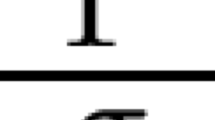Abstract
The relationship between logic and Category Theory was initiated by Lambek when viewing deductive systems as free categories with deductions as morphisms, formulas as objects and the cut-rule as composition. MacLane coherence theorems on monoidal categories showed how equality between morphism in a category resembles equality between proofs in a system with a kind of cut-elimination theorem.This raised what is nowadays known as categorical logic. Intuitionistic Natural Deduction systems are mapped into suitable categories according to formula-as-objects and proofs-as-morphisms notions of interpretation, extended to include functors as the categorical counterpart of the logical connectives. On the Proof-Theoretical side, Prawitz reductionistic conjecture plays a main role on dening an identity criteria between logical derivations. Reductions between proofs are worth knowing and representing whenever a deeper understanding of equality is present. From the 1-categorical point of view, morphisms are compared only by means of equations. This brings asymmetries into the proof-theoretical and categorical relationship. In the 70s Seely considered a 2-categorical interpretation as a solution to this problem. This article details Seely’s proposal and shows how even under this broader interpretation Prawitz based identity criteria cannot be completely supported. The article also considers the recent use of structural reductions, a kind of global reduction between proofs, as a help for supporting Prawitz based identity criteria.
Access this chapter
Tax calculation will be finalised at checkout
Purchases are for personal use only
Preview
Unable to display preview. Download preview PDF.
Similar content being viewed by others
References
Ekman, J.: Normal Proofs in Set Theory. PhD thesis, University of Goteborg (1994)
Lambek, J., Scott, P.J.: Introduction to Higher Order Categorial Logic, 1st edn., Cambridge. Cambridge Studies in Advanced Mathematics, vol. 7 (1986)
Mann, C.R.: Connections between Proof Theory and Category Theory. PhD thesis, Oxford (1973)
Pereira, L.C., Haeusler, H.: Structured reductions and the identity problem. In: Unilog (2007)
Prawitz, D.: Ideas and results in proof theory. In: Fenstad, J. (ed.) Proc. 2nd Scandinavian Logic Symposium, pp. 237–309. North-Holland, Amsterdam (1971)
Prawitz, D.: Natural Deduction, A Proof-Theoretical Study. Dover, New York (1965)
Seely, R.A.G.: Weak adjointness in proof theory. In: Applications of sheaves (Proc. Res. Sympos. Appl. Sheaf Theory to Logic, Algebra and Anal., Univ. Durham, Durham, 1977). Lecture Notes in Math., vol. 753, pp. 697–701. Springer, Berlin (1979)
Author information
Authors and Affiliations
Editor information
Editors and Affiliations
Rights and permissions
Copyright information
© 2010 Springer-Verlag Berlin Heidelberg
About this paper
Cite this paper
Englander, C., Haeusler, E.H. (2010). On the 2-Categorical View of Proofs. In: Margaria, T., Steffen, B. (eds) Leveraging Applications of Formal Methods, Verification, and Validation. ISoLA 2010. Lecture Notes in Computer Science, vol 6415. Springer, Berlin, Heidelberg. https://doi.org/10.1007/978-3-642-16558-0_42
Download citation
DOI: https://doi.org/10.1007/978-3-642-16558-0_42
Publisher Name: Springer, Berlin, Heidelberg
Print ISBN: 978-3-642-16557-3
Online ISBN: 978-3-642-16558-0
eBook Packages: Computer ScienceComputer Science (R0)




